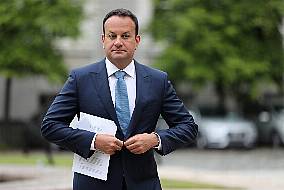The phone hack on Minister for Foreign Affairs Simon Coveney was most likely a criminal attack as opposed to one of espionage.
The Irish Examiner has been told the hack was discovered when other EU foreign ministers contacted Mr Coveney to say they had received dubious messages from his number.
The nature of the hack is set to be one of the main angles of investigation to be pursued by the Oireachtas foreign affairs committee on Tuesday, when Mr Coveney reappears to try and end the five-week-old Katherine Zappone appointment controversy.
Mr Coveney raised the fact that his phone was hacked in 2020 when attempting to explain why he deleted text messages relating to the Zappone appointment to the role of UN special envoy — a position that was never advertised.
There had been concerns the phone hack was related to Brexit negotiations, or that it was the work of Russian spies — but sources do not believe this was the case.
Despite the hack, Mr Coveney continued to maintain the same telephone number and continued to use a mobile phone to conduct government business.

It is this continued use of the same phone number and the regularity of his text deletions that will be the focus of questioning by members of the Oireachtas committee.
Mr Coveney has insisted that, since the hack, he operates on the basis that very few telecommunications are completely secure. He is set to appear at a Naval Service event in Cork on Saturday, alongside Taoiseach Micheál Martin but is not expected to make any public comment on the controversy until Tuesday.
It is also confirmed that the Department of Foreign Affairs will release a file of documents relating to the Zappone appointment on Monday, at the request of Mr Coveney.
The documents were not due to be released until next Wednesday but, given the political maelstrom, a request has been made to the Freedom of Information unit to release the files ahead of Mr Coveney’s committee appearance.







